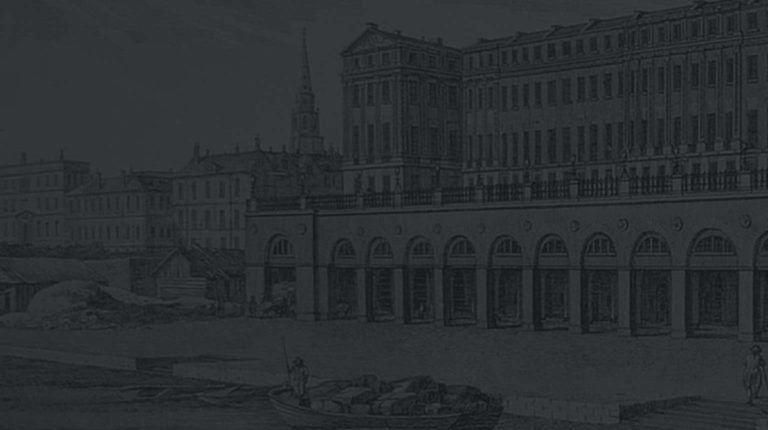It is a fact that Military History is illustrated with countless tales of heroism and bravery beyond the imaginings of those who have never seen action. Feats that challenge the roles of ‘everyday’ lives; exploits that amaze and inspire; deeds immortalised in book and in film.
We’ve all seen them – the major Hollywood Blockbuster. An intrepid hero in his military fatigues, defying all the odds to reach his lost colleague / capture the enemy’s outpost / find a lost love. We’ve all been enthralled at one time or another by these incredible (and often fantastical) tales. Movies they may be, but our investment within these stories is real. And why are we invested? Why are we captivated? It’s a subtle yet effective trick that Hollywood pulls – they present the hero or the heroine, and then they give them a choice.
The hero can decide. They can choose to trek across the continent to find Private Ryan. They can decide whether they want to join 617 Squadron even when they don’t know the actual mission. Of course, those of us watching from the comfort of our armchairs have zero control over the hero’s choice, but it is the fact that they have a choice at all that pulls us in. Because we can all identify with choice.
For most of us, those choices are more inane. Such as ‘shall I go to work today or award myself a lie-in?’ or ‘what shall I have for dinner?’. Of a lesser value they may be, but they are choices just the same. It is the presence of choice that gives us the identification with those on the screen. Just what would we do if faced with the same situation? Would we run away screaming, or would we jump on board that burning ship to rescue those trapped within?
In the real world, orders are issued in the military in order to eliminate (or at least reduce) choice, so that the soldier/pilot/seaman is less likely to make a mistake in a high-pressure situation that could lead to fatalities. The tales of heroism that Hollywood portrays almost always come when the lead character makes his or her own choices right there and then, on their own backs, based on nothing but an immediate evaluation of the situation.
The story of Captain GP Bevan reads just like that of a Hollywood plot, worthy of any silver screen. He was faced with an extraordinary situation, facing choices that had to be made on the spur of the moment, in the face of extreme adversity. The results of those choices saw him awarded the Rare ‘Archangel Command’ Albert Medal.

Lot 3998 in Baldwin’s Auction 101, 28 September 2016
The Superb C.M.G. ‘Gallipoli’ DSO and Rare ‘Archangel Command’ Albert Medal Group of 8 to Captain G.P> Bevan, Royal Navy.
Presented in a glazed and hinged mahogany display case, with a large framed and glazed portrait photograph of the recipient in uniform.
Estimate: £25,000-30,000
George Parker Bevan was born in 1878 in Staines, the second son of sixteen children. A long and highly successful military career saw him, amongst other achievements, awarded the D.S.O. for his involvement in the evacuation of Gallipoli. He rose through the ranks of the Royal Navy, and was appointed PTMO to the staff of the Governor-General of the Province of Archangel in Northern Russia.
One of his roles was to orchestrate the landing and transportation munitions in that Russian port, and it was on November 8th, 1916 that that role would present him with choices befitting the plot of any Hollywood blockbuster.
The day had started as any other – many ships were moored at Archangel, and others were coming and going throughout the morning. Bevan’s crews were busy unloading munitions that were to be transported to the Allies fighting on the Russian Front.
At precisely 1pm, the merchant ship SS Baron Driesen exploded.
There was no time to find the source of the explosion. Desperate and frantic attempts were made to move nearby ships away from the flames, the crews terrified that others (all carrying live ammunition) may catch a burning ember. At 1.40pm, the aft part of the SS Earl of Forfar, moored next to the Baron Driesen, also exploded.
The ship’s Master, Captain James Campbell Hurry, was adamant that he return to his burning vessel, panicked over the fate of his crew. The flames beat him back, and he joined Captain Bevan in attempting to move other ships away as burning embers fell around them. Many of those embers landed on the quay, and the crew’s task was made even harder by several small fires on the land.
One can only imagine the sense of fear and the desire to keep a cool head in the face of such ruination, knowing that the choices you are making right there and right then will determine the fate of so many of those around you. Such bravery, however, pales into insignificance in the face of what happened next.

The framed portrait of Captain Bevan in full uniform, to be sold alongside his medals at the auction.
As Captain Bevan and his team were frantically trying to move other boats away from what was by now a huge conflagration, more explosions from the Earl of Forfar saw that ship almost completely engulfed. In the midst of these explosions, Captain Hurry was sure he heard voices, coming from the flames.
The call for volunteers went up (we all face choices, every single day. Sometimes those choices matter more than others).
Clambering aboard the burning ship, Captain Hurry rescued several men whilst having to lift live shells out of his path. Ten minutes after the survivors had been dragged to safety, the deck also blew up.
By now, dark had fallen (the Port of Archangel is located on the Northern coast of Russia, and in November, dark comes early) although it was unlikely to have been noticed by the survivors, lit by so many fires all around them. Between the burning Earl of Forfar and the quay (which was now almost completely on fire itself), was a one-hundred-tonne floating crane. Suddenly, cries went up amongst the men that voices had been heard coming from the crane.
The only way to reach it was to cross what remained of the Earl of Forfar. Step forward Captain Bevan and Lt Cdr Maurice McMahon. Selflessly, they darted into the flames in an attempt to reach the crane. No sooner had they stepped aboard when they heard another cry for help, coming from the smouldering remains of the forecastle.
They immediately set about extricating the casualty. As they attempted to sweep aside burning planks, boxes of small munitions were exploding all around them, filling the air with bullets moving as quickly as if they had been fired from a gun. Moving the wreckage, they found the mate of the Earl of Forfar, his arm, leg, and collarbone broken. Somehow, they managed to pass the man to a waiting tug, saving his life.
With the mate successfully rescued, Lt Cdr McMahon re-entered the flames, crossing to the crane on a single plank. Trapped beneath the crane were the ship’s carpenter along with two Russian members of his crew. All were saved.
All six of the volunteers, those fearless men who made the choice to rush onto a burning ship, whilst boxes of live ammunition exploded all around them to rescue their comrades were awarded Albert Medals, Captain Bevan amongst them.
Were this a Hollywood movie and not real life, the credits would probably roll right there. There is, however, an interesting (if macabre) footnote to the story – something perhaps for those who stayed in the cinema to the very end.
Bevan was recalled to London in February 1918, and appointed Naval Assistant Director of Transports. In January 1920, he was due to travel to Aden to take up a post as senior Naval Officer in the Persian Gulf. He had, however, been suffering from severe headaches for some time, and had been instructed by his doctor to rest. Duty prevailed, and he sailed anyway.
Upon arrival, despite feeling unwell, he went immediately ashore to greet the Governor. As the two men shook hands, Bevan removed his hat, fell to the ground and died.
George Parker Bevan died of a brain tumour, and is buried at Maala Cemetary in Yemen.
In real life, Hollywood endings rarely happen, no matter what choices we make.


